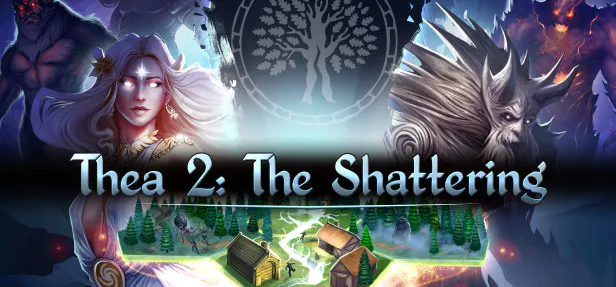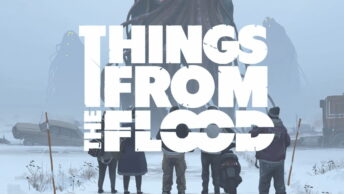Survive long enough to fulfill the role that the gods have bestowed upon you in a harsh post-apocalyptic fantasy world that seeks to kill you at every turn.
Type: Single-player
Genre: Strategy, RPG,
Survival
Developer: MuHa Games,
Eerie Forest Studio
Publisher: MuHa Games
Release date: 13 May, 2019


Overview
Thea 2: The Shattering pulls no punches and explains little. It takes a bit of an investment to get to a point where things make sense and you can freely pursue your goals without worrying that there is some other task that needs doing. Once you overcome that hurdle, there’s a challenging, deep, sandbox, party-based survival game that stands out as a unique and rewarding experience.
The Odds Are Stacked Against You
Your introduction to the world of Thea begins with a selection of which god you serve. Only two of these are unlocked at first with several others eventually becoming available. Each of these offers their own unique boons and impacts your starting conditions. For example, Zorya, a goddess of turmoil and magic, grants you a free warrior and scavenger while also increasing the initiative of your party in combat. You’ll then have a number of points to customize the other aspects of your starting party ranging from resources to equipment to additional characters. Many of these options are locked as well, though each game will grant you some points that can be used to unlock them in further adventures.
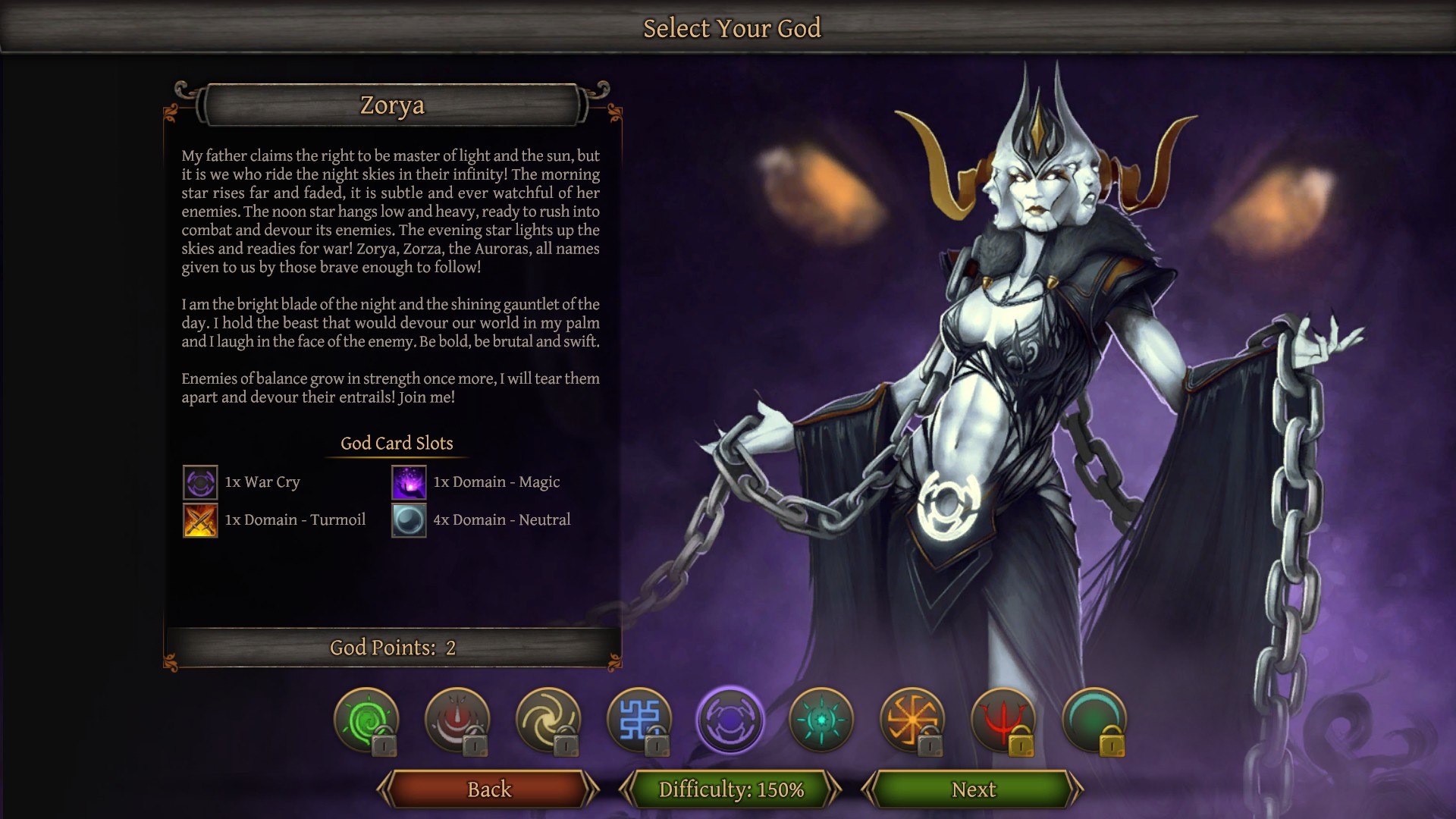
Once your party has made it into the world, you’ll receive a variety of quests but the most important task that you have is to survive. The denizens of Thea are particularly hostile, but the cold and hunger can be just as threatening under the right circumstances. In order to keep your characters healthy and happy, you’ll need fuel (wood, coal) and food (the more variety the better). The passage of time with its seasons, weather, and day and night cycle will also challenge you with modifiers such as reduced food harvesting speed, hindered movement, and shortened vision.
When the basics of survival are in place, it’s time to turn your ambitions outward. A wide variety of resources are out there to be harvested, offering varying levels of efficiency for crafted items and structures built in your settlement. You may be able to make a suit of armor with iron but making it out of the far more challenging to acquire moonstone will offer a vastly superior piece of equipment. Resources fall into one of the primary categories (wood, stone, metal, hide, bone, gems, and food) and most crafting requires only a resource type, not a specific resource itself.
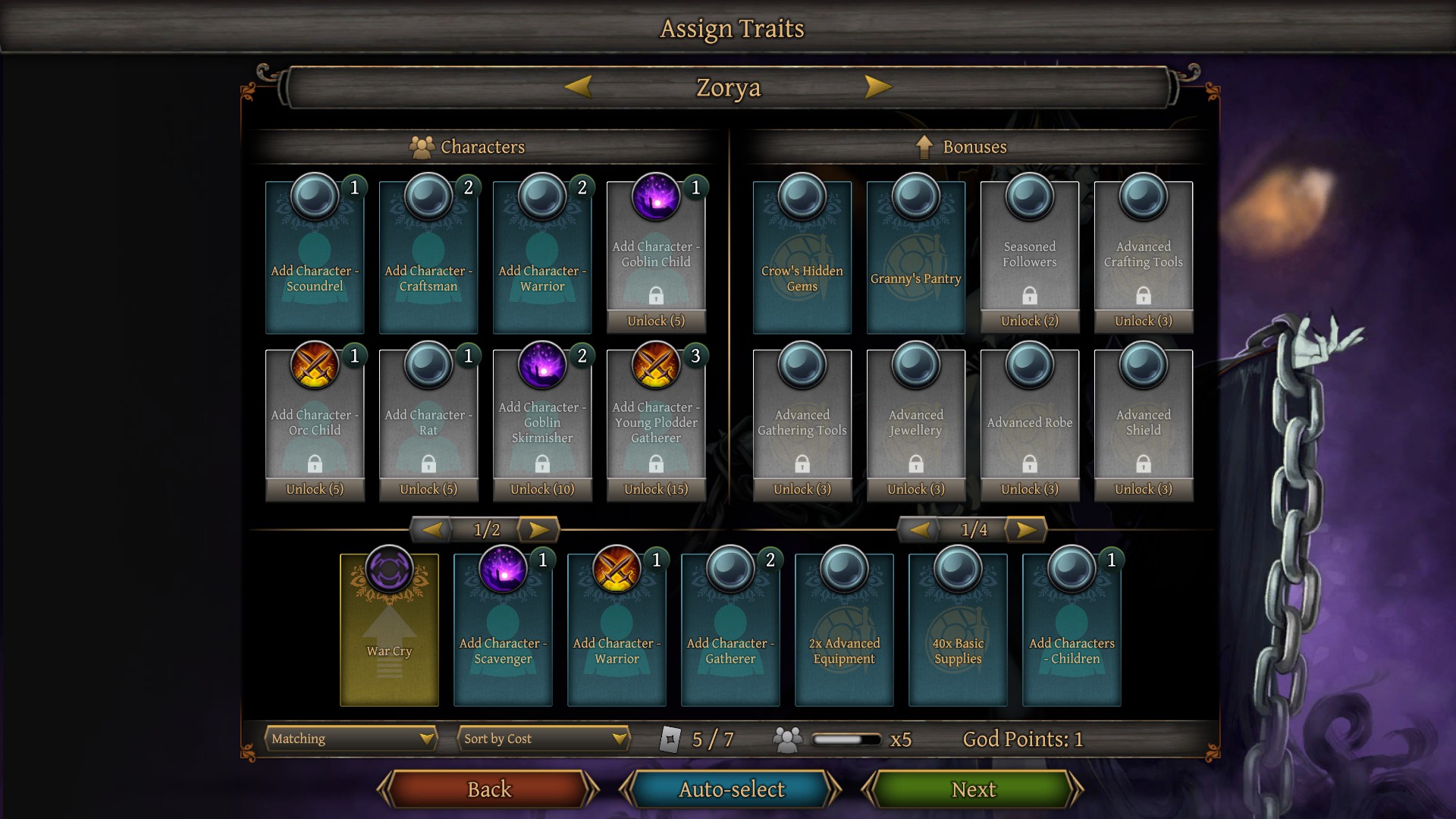
Research is invaluable as it unlocks the capability to harvest more advanced resources, craft new equipment, cook new recipes, and improve your efficiency overall. On the other hand, cooking allows you to combine food resources to create new types of food, not only boosting morale by expanding your party’s selection but allowing you to stretch how far your food resources can go.
Building a settlement is also useful in many ways, though interestingly enough, entirely optional; the nomad lifestyle is one that also has its own strengths and weaknesses. Settlements boost the harvesting talents of characters within them and allow the construction of structures that provide very useful buffs and abilities. You may still be trekking to distant lands but a cared for and protected homestead offers many advantages.
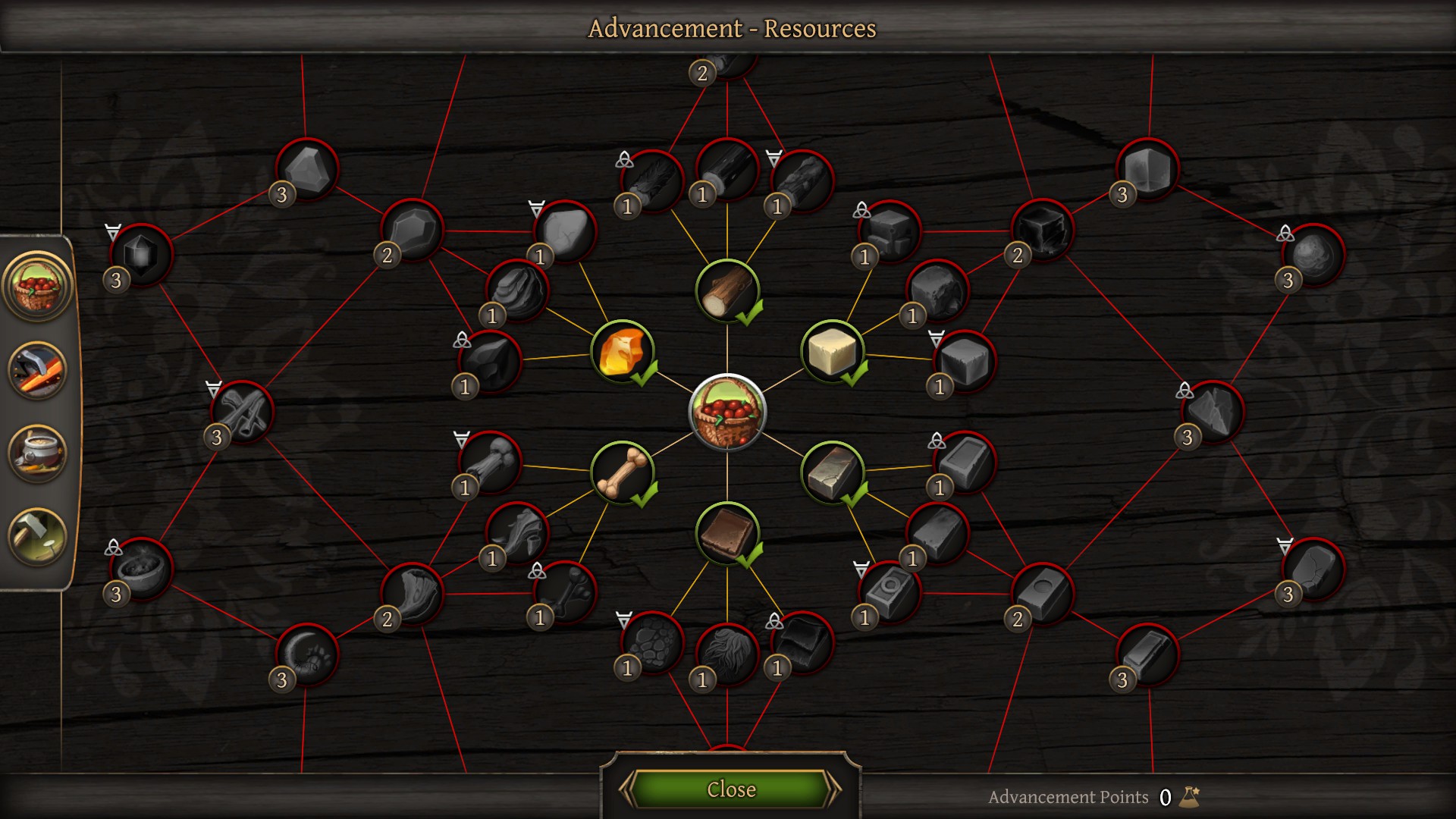
Pen the Tale of the Chosen
The lore of Thea is quite unique and always as some interesting new event around the corner that isn’t an expected norm in contemporary fantasy. Slavic myths take center stage and you’ll be navigating through them as a chosen of the gods in a fantasy rendition of a post-apocalyptic world. You’re able to choose which of your starting characters is the chosen but be warned that if they die, your story has ended. I’ll avoid spoiling too much on the main storyline but you’ll be experiencing most narrative events via a visual novel-like style of narration that offers several choices for almost every one of them.
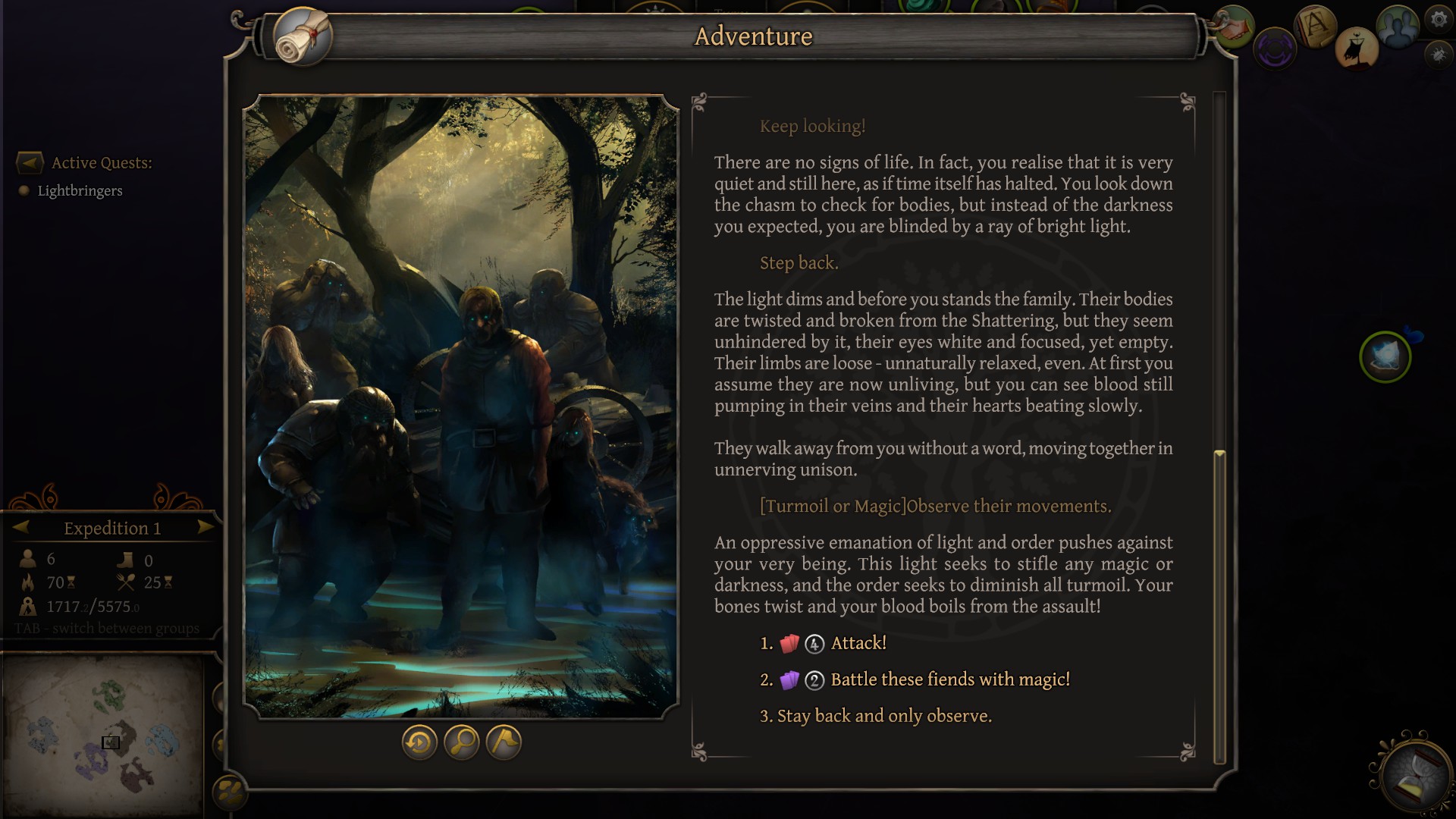
The Bold and the Brave
If all goes well, your roster will increase in size throughout your story. New children are born and new allies are discovered, including several races and plenty of classes to keep you entertained. Some may be talented warriors, others may have a skill for crafting or gathering, others still may be blessed with a knack for oratory; regardless, all are important and incredibly useful parts of your group. The individual talents and many uses for these characters will surprise you if your expectations are based on others in the genre.
In my most recent adventure, I began with a warrior (fantastic at physical combat and challenges), a scavenger (half-mad woman in-tune with the mystical side of the world), and a gatherer (vastly superior to others at resource collection), who chaperoned a pair of children through the world until they grew into valuable characters in their own right. One of these became a zerca (cleric with incredible wisdom) and the other a witch (powerful spiritual combat class), though we were also joined by a craftsman who vastly improved our capability for putting together new equipment.
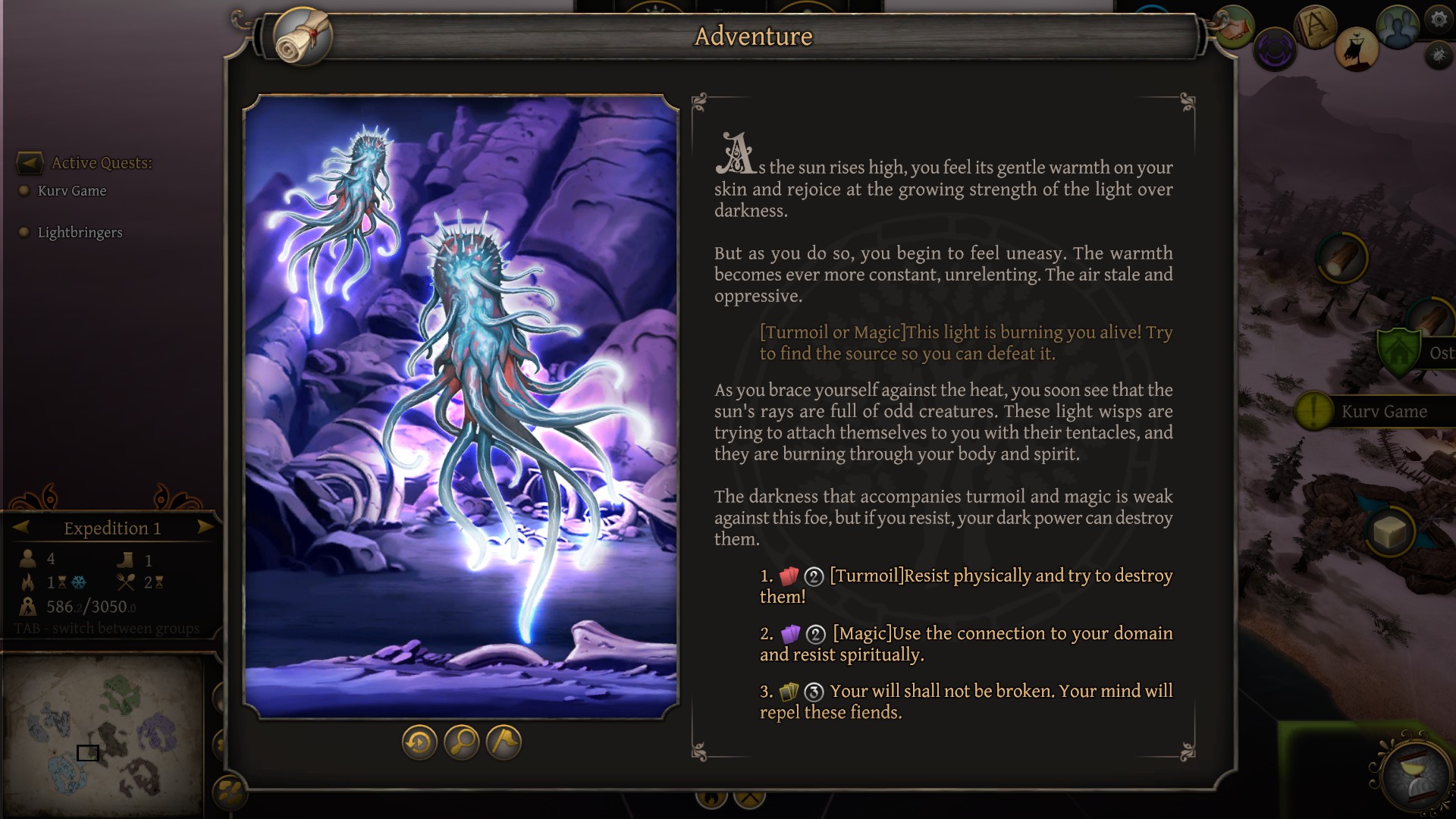
These characters improve by gaining experience and levelling up; levels alternate between boosting one of an option of three stats and choosing between two abilities (these may upgrade old abilities or teach a new one altogether). I enjoyed this style of progression quite a bit, my only complaint being that at times the stats offered for improvement were too random and nearly useless to the individual in question. I wasn’t particularly pleased when my hunter ended up surpassing my warrior’s strength by a noticeable amount.
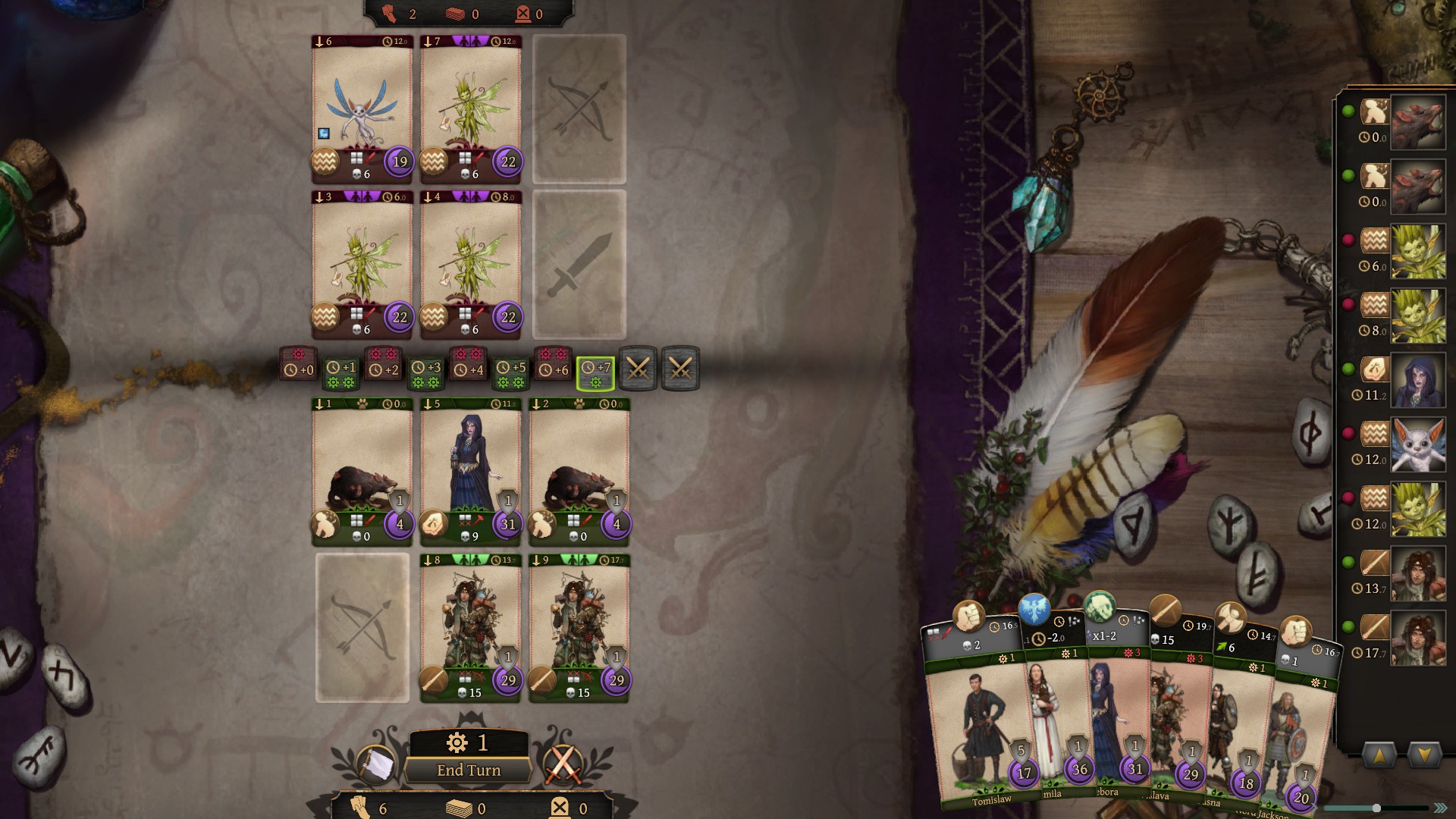
Your Three Lives: Health, Sanity, and Faith
Hostile encounters play out differently in Thea 2 than in anything else that I’ve played. Characters are represented by cards that are placed on a grid that includes a front and back row, one for you, one for your enemy. Positioning matters as each character’s abilities are chosen at the time that their card is placed and equipment and abilities have varied ranges and areas of effect. To paint the picture more clearly, a greatsword will deal damage to a foe in melee range as well as to those adjacent to them on the front row. Alternatively, axes deal the most impressive damage but only to a single target, while bows can strike any foe without restrictions. There is quite a variety of weapons that you’ll be able to get your hands on and they are plenty of fun to customize your party with.
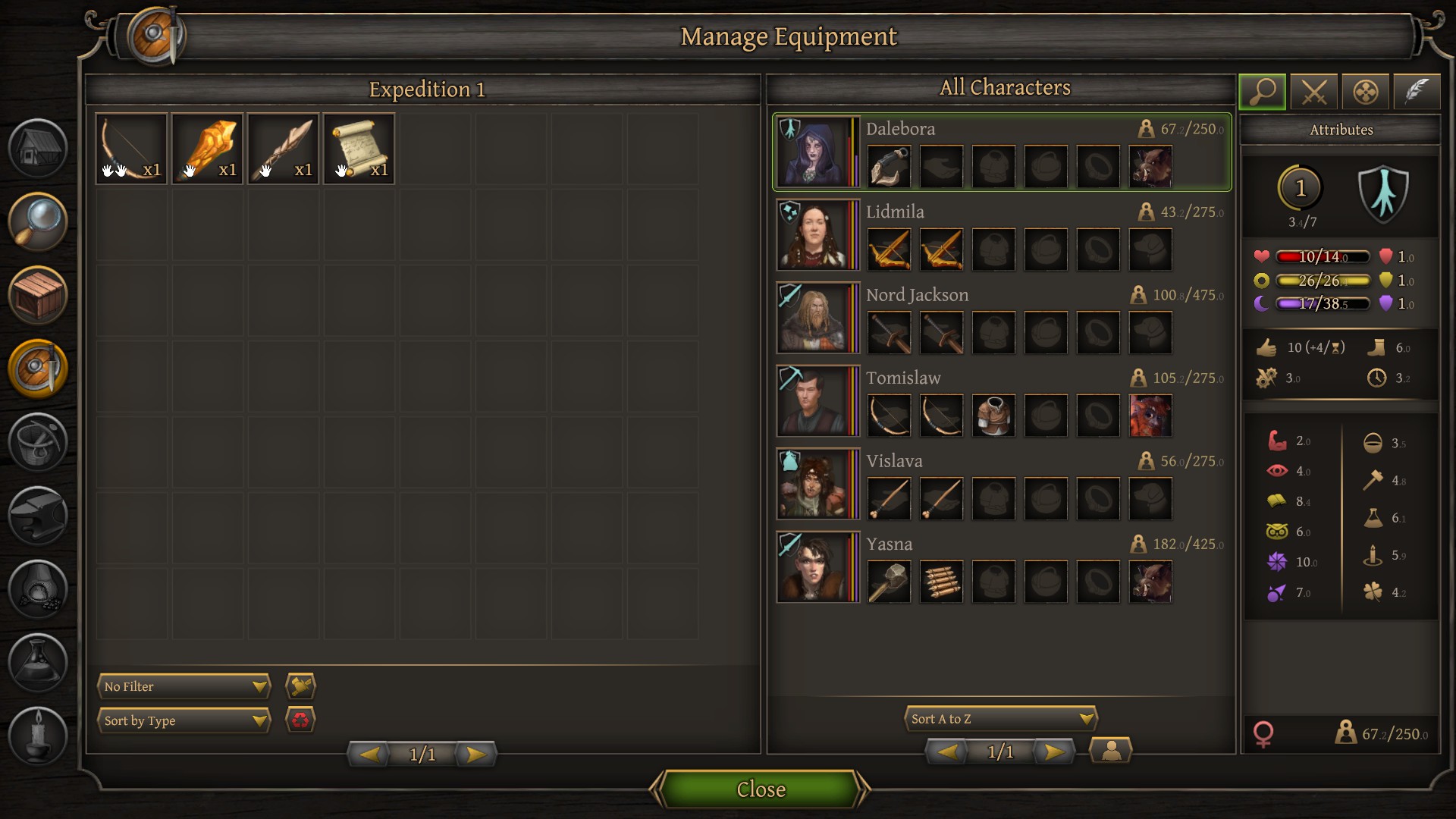
What stands out with this title is its distribution of hostile encounters into physical, mental, and spiritual combat and challenges. Your warrior is likely to excel in physical combat and challenges, though they are just as likely to be absolutely terrible when it comes to those of the mental and spiritual varieties. Your physical tanks and damage dealers may pale in comparison to the overwhelming mental power of your zerca that had only offered some minor talent for supporting the party when physical challenges arose. It was interesting to see each character’s ‘life’ take the form of health (physical), sanity (mental), and faith (spiritual) and see a rather unimposing physical character become a tank as soon as an encounter broke out that couldn’t be resolved with a savage beating. These differing types of encounters also allow you to make many choices throughout your story, such as slaying the bandits who are attacking you or simply talking them down and I appreciated it.
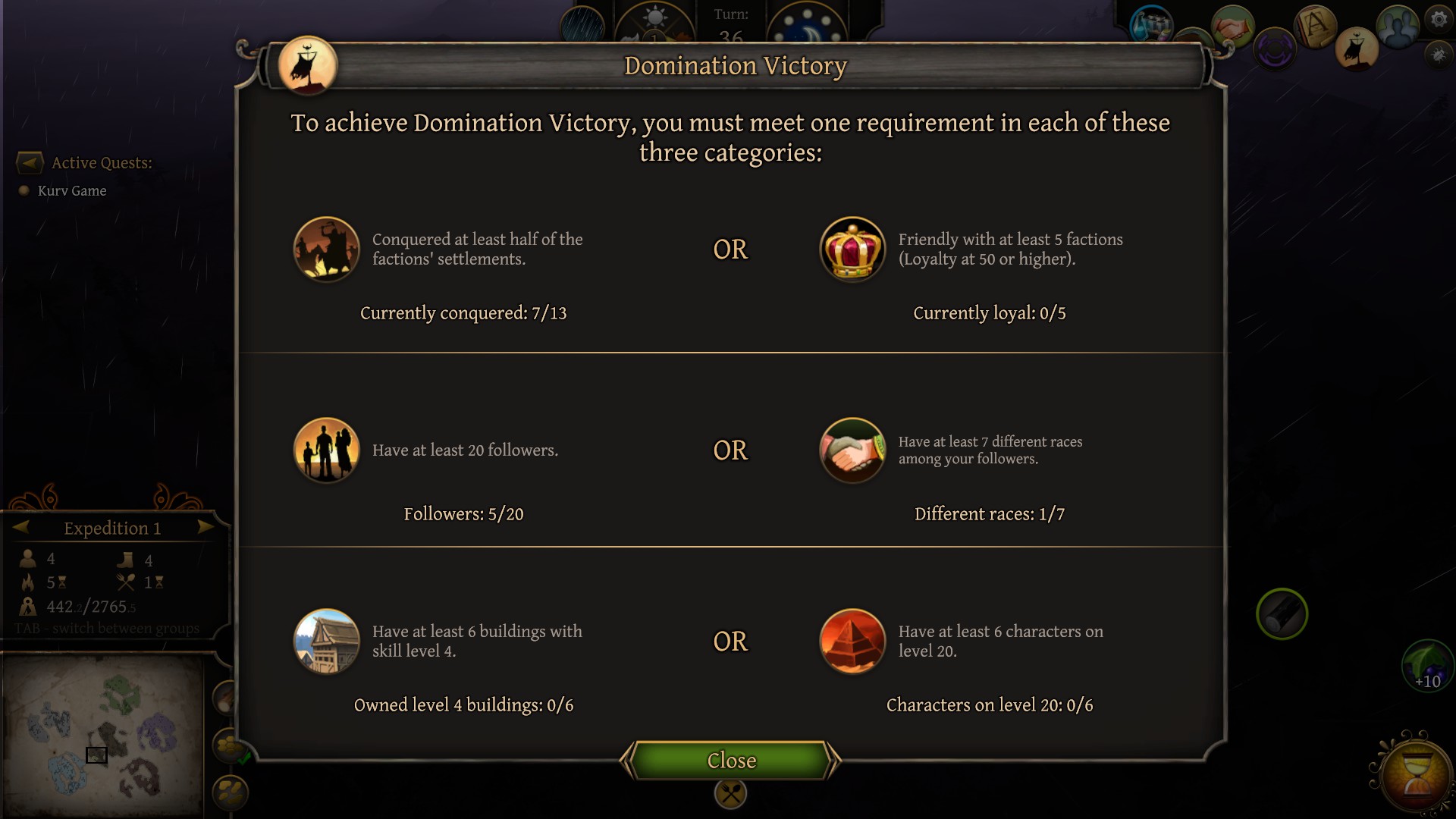
Verdict
In my first couple of games of Thea 2: The Shattering, I wasn’t sure how I felt about it. It seemed to have plenty of potential with its many interesting parts but with little real direction, I found myself mostly messing around with no milestone goals in place simply to learn how it worked. My third and current story is where it all clicked, though. I found myself finally synced up with the excellent design and unique combination of mechanics within Thea 2 and was glued to my chair for a handful of hours. If the concept interests you and you’re willing to put the time and effort into learning its systems, Thea 2 might be a brand new experience that you can really sink your teeth into. If you’re more likely to be frustrated or annoyed by its lack of instruction and complete hands-off approach, you may want to give this one a pass

